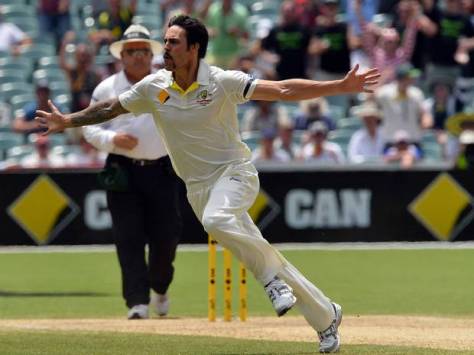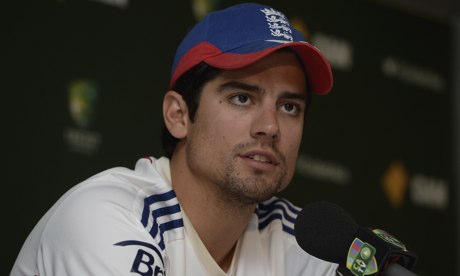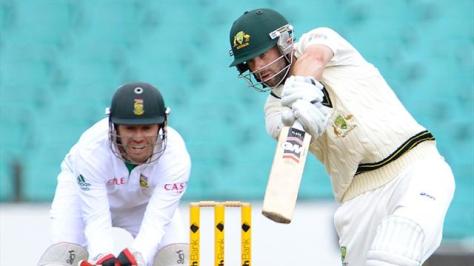With over 90000 expected at the MCG today, can Australia continue to dominate this test series, or will England be able to replicate Australia’s amazing Ashes turn around?
Although stranger things have happened, it is hard to see England being able to turn their form around to such a degree, in such a short period of time.
A task made even more difficult by not only the unexpected and sudden retirement of Graeme Swan during the week – and the subsequent fallout following his decision. But also the injury cloud hanging over Stuart Broad, by far England’s best bowler in the series so far.
There is also the fact that it is not just one area of the game that England need to improve. They have been thoroughly outplayed by Australia in every facet of the game.
Such has been Australia’s dominance over the first three tests that, of the 41 sessions played, England have taken the points in only three. One of those, the penultimate of the third test, produced their one and only century of the series so far – an impressive 120 from Ben Stokes. That innings brought his average up to 41.75 for the series, the only batsman to average above forty.
Conversely, Australia’s batsmen have scored seven individual centuries. Dave Warner has amassed 457 runs at a Bradmanesque average of 91, while Michael Clarke and Brad Haddin are averaging 55 and 65 respectively. The top seven have all scored half centuries, and to rub further salt into an already raw wound, Australia’s number ten, Ryan Harris’s average of 38 is better than all the English batsmen apart from Stokes.
The disparagement between the two sides bowling attacks is even greater. Besides Stuart Broad, who has taken 14 wickets at 25.21, the English bowling figures are woeful. James Anderson has taken seven wickets at an average of 58, while Graeme Swann has five wickets at 55. The other bowlers England have used – Tremlett, Root, Stokes, Panesar and Bresnan – are all averaging above 40.

The Australian bowling attack has been nothing short of brilliant. Led by an in form and injury free Mitchell Johnson, they have been relentless. They have stuck to their game plans, bowled to their fields, and given the English batsmen no quarter.
The figures, while not telling the whole story speak for themselves. Johnson, 23 wickets at 15, Harris, 12 at 23, Siddle, 11 at 22, Lyon 10 at 31, and Watson chipping in with three wickets at an average of 31.
Not only has the Australian attack bowled magnificently well, they have also chipped in with the bat. As already noted, Harris is averaging 38, while Johnson is as in form with the bat as he is with the ball, averaging 49. As a quartet they have added 301 valuable runs in four innings, at an average of 27 per player. In contrast England’s last four have only scored 151 runs in six innings at an average of 7.
The disparity between the two sides does not stop with bat and ball. In the field the Australians have been magnificent, while England have been anything but. They have dropped far too many catches at vital times throughout the series. In particular, in the final session of the first day in Adelaide when they dropped Clark (148) on 18, Bailey (51) on 10 and Haddin (118) before he had barely scored.
There is also a noticeable difference in the demeanour of the respective captains. Michael Clark is leading from the front averaging over 50 with two centuries. His decision making in the field has been first rate. He has appeared confident, yet level headed throughout the series, and he obviously has the full support of his team.

Alistair Cook on the other hand is averaging 25, far below his overall average of 47, and the lowest of England’s top six. He has appeared hopeful, more than confident, and at various times his captaincy has been questionable.
The differing approaches was perhaps at its most evident in the third test in Perth, where Australia had a minimum of three slips the vast majority of the time while the pace bowlers were operating. England had two for much of Australia’s innings, and occasionally only one.
Perhaps the English team can take some inspiration from the Barmy Army. They have been fantastic all summer. No matter how bad a situation the England side has found itself in, the Barmy Army’s belief in their team has not wavered. They have cheered, chanted and supported their team throughout, and no doubt they will be out in force again today at the MCG. An Ashes series would not be the same without them.
The task before England is huge. Not only do they have to drastically turn their own form around, they have to face an Australian team determined to finish them off. Australia will not be letting up, despite having already won the Ashes. There are too many players in the side that have tasted the bitterness of multiple Ashes losses for that to occur, particularly Captain Michael Clark.
The Australians also consider this series to be a continuation of the one played in England earlier in the year. According to them, the series stands at three all, not three nil, so from them there will be no let up. However looking at it from that perspective also gives hope to the English team, as they can still ‘win the series’, if not the Ashes, and at least give them some momentum coming into the New Year.
Then they could all be given Knighthoods.



